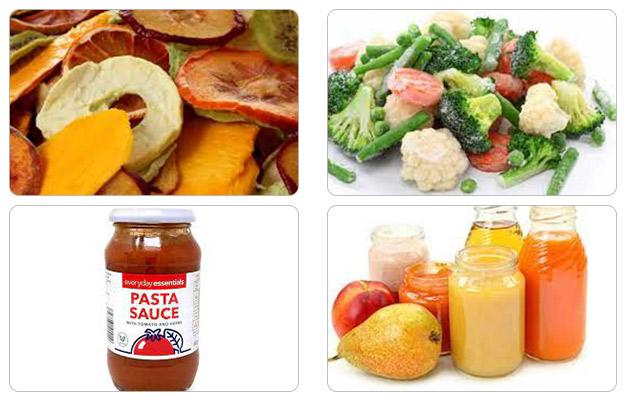As we stroll through the vibrant aisles of our local grocery stores, we come across various food items, including fresh vegetables, canned goods, and frozen treats. Among them, we often encounter the term “processed vegetables.” But what exactly does it mean? Is it a good or bad thing? In this blog, we will dive into the world of processed vegetables, shedding light on what the term entails, the methods involved, and the impact it has on our food choices and health.
Understanding Processed Vegetables:
Processed vegetables refer to vegetables that have undergone specific methods of preservation or preparation before they reach our plates. This includes various techniques such as canning, freezing, drying, and pickling. The primary purpose of processing vegetables is to extend their shelf life, maintain their nutritional value, and make them more convenient for consumption throughout the year.
Different Types of Vegetable Processing:
Canning:
Canning is a preservation method where vegetables are sealed in airtight containers, usually metal cans or glass jars, to prevent the growth of bacteria, yeast, and molds. The vegetables are first blanched to destroy enzymes that can cause spoilage and then cooked at high temperatures before sealing. Canned vegetables can be stored for extended periods and are ready to eat once opened.
Freezing:
Freezing is another popular way to process vegetables, preserving their texture and nutrients. Freshly harvested vegetables are quickly frozen to extremely low temperatures, which prevents the formation of ice crystals that could damage the cell structure. Frozen vegetables are convenient as they require minimal preparation and can be stored for months without significant loss of nutritional value.
Drying/Dehydration:
Drying or dehydration involves removing the moisture content from vegetables to prevent microbial growth and spoilage. This process can be done through the sun-drying method, air-drying, or using specialized dehydrators. Dehydrated vegetables are lightweight, have a long shelf life, and are often used in soups, stews, and snacks.
Pickling:
Pickling is a traditional preservation technique where vegetables are immersed in a mixture of vinegar, salt, and spices. The acidity of the pickling solution helps prevent the growth of harmful microorganisms, preserving the vegetables while infusing them with unique flavors.

Pros and Cons of Processed Vegetables:
Pros:
Extended Shelf Life: Processing vegetables helps reduce food waste by prolonging their shelf life, allowing us to enjoy seasonal produce year-round.
Convenience: Processed vegetables are readily available and require minimal preparation, making meal planning and cooking easier for busy individuals.
Retention of Nutrients: Proper processing techniques can retain essential nutrients, ensuring we still get vital vitamins and minerals from processed vegetables.
Cons:
Added Ingredients: Some processed vegetables may contain added salt, sugar, or preservatives to enhance flavor and extend shelf life. It’s essential to read labels and choose options with fewer additives.
Potential Nutrient Loss: Processing methods like canning and dehydration can lead to some loss of heat-sensitive vitamins, such as vitamin C and B-vitamins.
Environmental Impact: The processing and packaging of vegetables can have environmental consequences due to energy consumption and waste generation.
Conclusion:
Processed vegetables are an essential part of our modern food supply, offering convenience, extended availability, and retention of nutrients. However, it’s crucial to be mindful of the processing methods and added ingredients, opting for healthier options that align with our dietary needs and sustainability goals. As consumers, understanding the journey from farm to table empowers us to make informed choices, ensuring a balanced and nourishing diet while appreciating the wonders of processed vegetables.
However, for the above processing, vegetable processing line are required to complete. If you are interested in vegetable processing, you can contact us at any time. We are a manufacturer and supplier of vegetable processing solutions. We can provide complete solutions according to your needs to help your vegetable processing business succeed.
